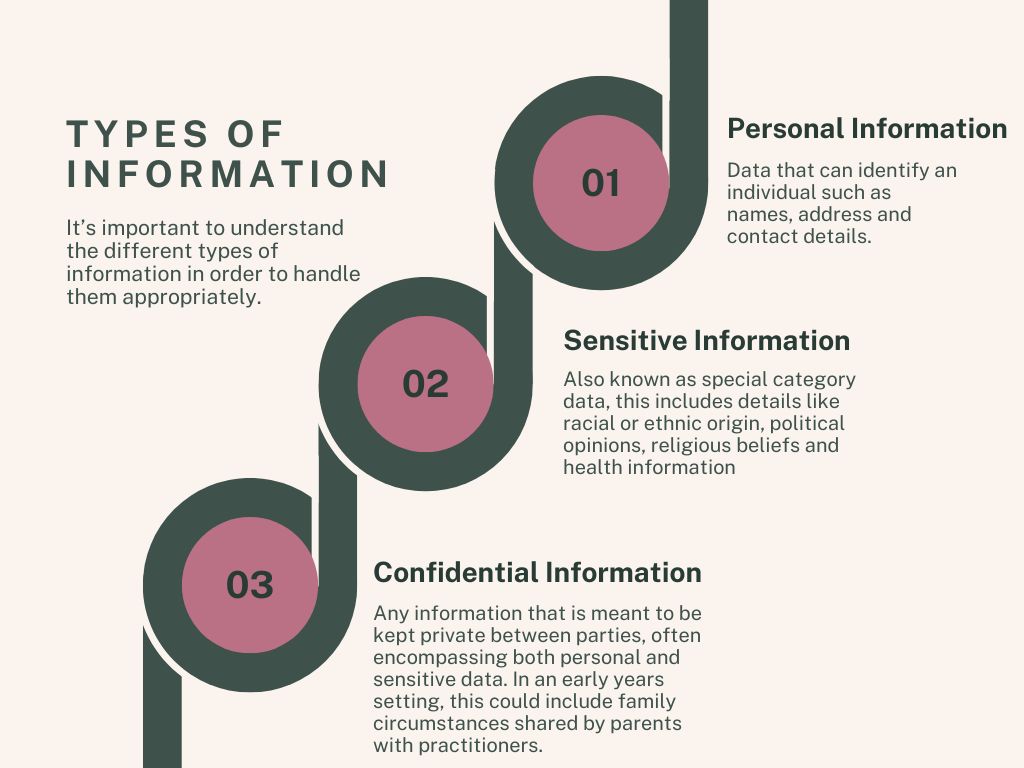Introduce
Information sharing is a key responsibility for anyone working with young children and their families. Understanding the types of information and the laws that guide its use ensures safety and trust while maintaining the highest ethical standards.

Develop
Confidentiality vs. Safeguarding
Maintaining confidentiality is fundamentally important in any work with children and their families. However, the safety and wellbeing of children always takes precedence. When there’s a risk of harm, sharing information with appropriate authorities is not just allowed, but necessary and essential.
Legal Context
Understanding the legal frameworks that govern information sharing is essential for compliance and ethical practice.
- Data Protection Act 2018 and UK GDPR: These laws regulate the processing of personal data, and emphasise the need for lawful, fair, and transparent handling of information. They permit sharing information without consent when it is to safeguard children.
- Information Sharing: Advice for Practitioners will provide you with more details to guide your practice.
Reflect
Stop and Reflect: These reflective questions aim to help you consider how to handle challenges responsibly and ethically, ensuring that information is shared securely, appropriately, and always in the best interests of the child.
– Why is it important to balance confidentiality with safeguarding responsibilities?
– How would you approach a situation where a parent requests their information not to be shared, but you believe safeguarding concerns exist?
– What steps can you take to ensure information is shared securely and appropriately?






